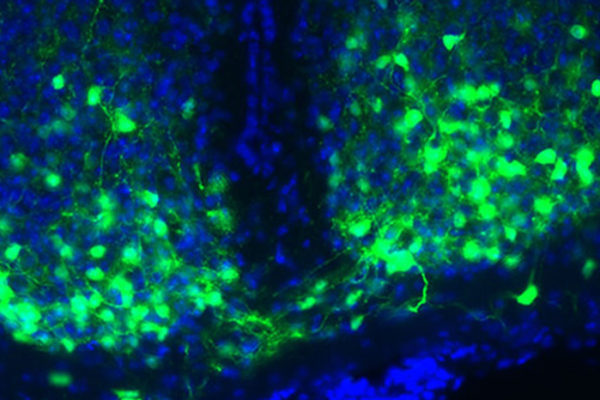Luenemann will not return as WUSTL volleyball coach
Rich Luenemann, Washington University in St. Llouis’ head women’s volleyball coach since 1999, will not be returning to the Danforth Campus following his leave of absence, director of athletics John Schael has announced.
WUSTL women’s soccer ranked No. 1 for second time in school history
For just the second time in school history, the Washington University in St. Louis women’s soccer team is ranked No. 1 in the National Soccer Coaches Association Top-25 Poll, the association announced last week.
Boo! The South 40 welcomes pint-sized princesses and monsters for Campus Y Safe Trick or Treat
Tiny ghosts, goblins and witches enjoyed face painting and candy at Safe Trick or Treat, a Campus Y tradition.
J. Robert Lennon Nov. 5 and 7
“Over the last decade, J. Robert Lennon’s literary imagination has grown increasingly morbid, convoluted and peculiar,” writes The New York Times Book Review, “just as his books have grown commensurately more surprising, rigorous and fun.” Lennon, the Visiting Hurst Professor of Creative Writing at Washington University in St. Louis, will host a pair of events Nov. 5 and 7.
International students tee off at ‘Golf as a Career Builder’
Office for International Students and Scholars and the Career Center offered international students a crash course in putting and driving at Forest Park.
Exploring St. Louis’ ‘infinite possibilities’ in the 21st century
On the occasion of the City of Clayton’s centennial year, Washington University’s Assembly Series will present a panel discussion exploring the region’s future prospects and opportunities for growth featuring leading international authorities from our institution: William Powderly, Peter Raven and Holden Thorp. The “Innovation and Infinite Possibilities in the 21st Century” program will begin at 7 p.m Wednesday, November 6 in Simon Hall May Auditorium on the Danforth Campus.
Celebrating Washington University by celebrating distinguished faculty and alumni at Founders Day
On Saturday, Nov. 2, Washington University’s “family” will come from near and far to gather in St. Louis and celebrate its founding in 1853. The annual Founders Day dinner and ceremony, sponsored by the WUSTL Alumni Association, will feature an address by Jon Huntsman Jr., former U.S. ambassador to China. Other highlights include the presentation of Distinguished Faculty and Alumni awards and the Robert S. Brookings Awards.
Renovated Whittemore House serves local food with international flavors
The newly renovated Whittemore House has a new look, a new menu and its old chef. Jim Huber is back in the Whittemore House kitchen serving local food with an international flair. The historic club also is serving weekday breakfast, Wednesday bistro dinners and monthly wine dinners.
VIP treatment for jet lag
A small molecule called VIP, known to synchronize time-keeping neurons in the brain’s biological clock, has the startling effect of desynchronizing them at higher dosages, says a research team at Washington University in St. Louis. Neurons knocked for a loop by a burst of VIP are better able to re-synchronize to abrupt shifts in the light-dark cycle like those that make jet lag or shift work so miserable.
WUSTL, UMSL celebrate 20 years of engineering education
University of Missouri-St. Louis chancellor emeritus Blanche Touhill and Washington University emeritus chancellor William Danforth led the formation of a joint undergraduate engineering program between the two schools, which saw its first class in the fall of 1993. Fast-forward 20 years and it has graduated nearly 650 students. Since 2008 the program has grown nearly 50 percent, and about 75 percent of the graduates stay in the St. Louis area.
View More Stories

